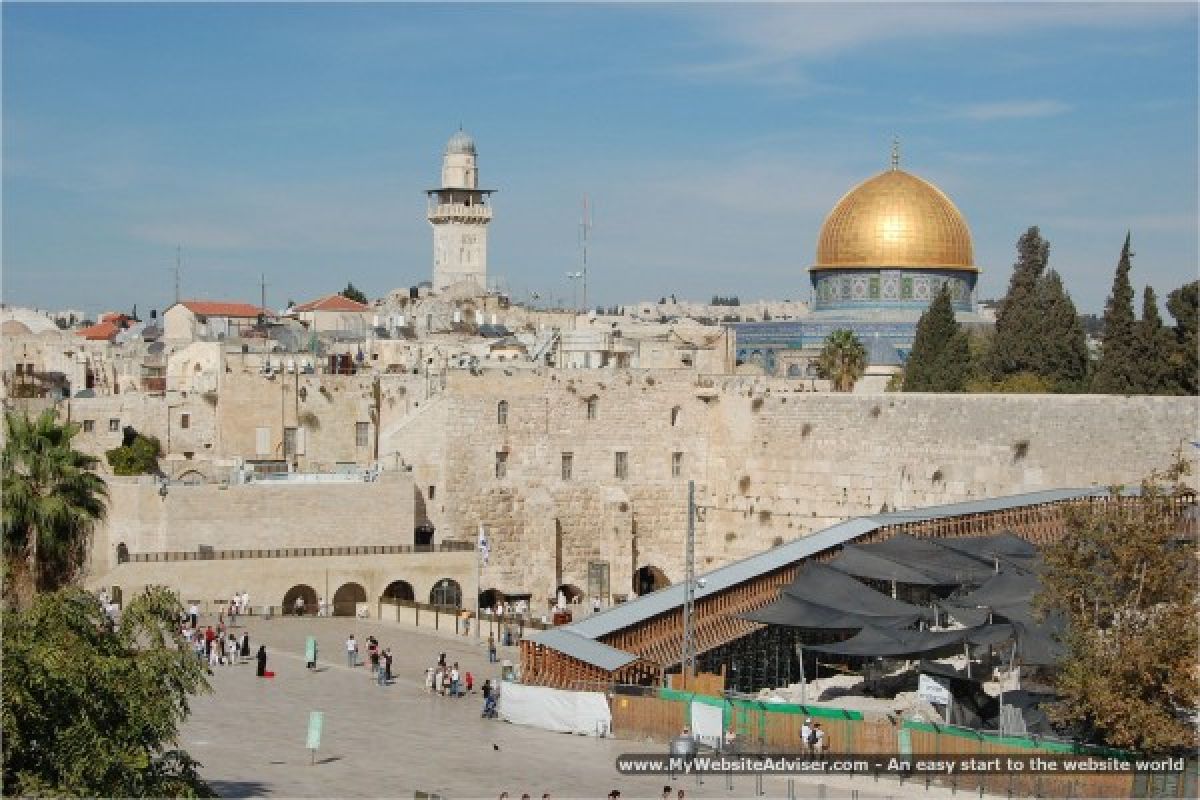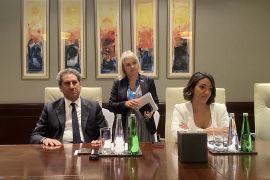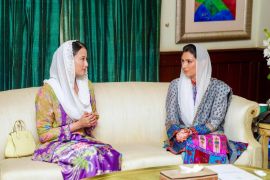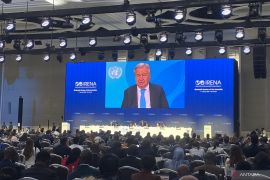US President Donald Trump on Tuesday called Palestinian President Mahmoud Abbas and other Arab leaders to inform them of his intention to move the US Embassy to Jerusalem.
But Trump was warned by many in the Middle East and elsewhere of the "disastrous consequences" that the decision would have on the regional stability and on any prospect of a long-lasting peace agreement between the Israelis and Palestinians.
Currently, no country has its embassy in Jerusalem, and the international community, including the United States, does not recognize Israel`s jurisdiction over and the ownership of the city.
Indonesian Vice President Jusuf Kalla has remarked that Trump`s plan to relocate the embassy in Israel to Jerusalem could worsen the political situation in the Middle East region.
"The political risks in the Middle East will be complicated, as the source of the complications is the conflict between Palestine and Israel," the vice president said here on Wednesday.
Kalla stated that Indonesia`s stance regarding the issue was clear.
According to him, in addition to aggravating the situation in the Middle East, the move will also hinder US efforts to mediate in the Palestinian-Israeli conflict.
Several top US officials have previously said that Trump may, on Wednesday, declare recognition that Jerusalem is the capital of the state of Israel but will delay the transfer of embassies from Tel Aviv for six months.
According to US officials, Trump is expected to sign a decree stipulating that the US still maintains an embassy in Tel Aviv for another six months but will seek to speed up the move.
The Trump Administration will need time to deal with logistical issues, such as the absence of an embassy building and secure housing for staff members in Jerusalem, according to a US official.
Israel captured Arab East Jerusalem in the Middle East war in 1967 and later annexed it. Israel`s move was not recognized by its international legitimacy.
Palestinians have long seen East Jerusalem as the capital of their future state.
Al Jazeera News reported that leaders from around the world reacted to the news of Trump`s planned relocation of the US embassy in Israel.
" Abbas warned of the dangerous consequences that such a decision would have on the peace process and to the peace, security, and stability of the region and of the world," Nabil Abu Rudeina, the Palestinian president`s spokesperson, remarked in a statement after Trump`s call.
Echoing Abbas` comments, Al Jazeera News noted that Jordan`s King Abdullah II told Trump that such a decision would have "dangerous repercussions on the stability and security of the region."
The king also warned the US president of the risks of any decision that ran counter to a final settlement of the Arab-Israeli conflict based on the creation of an independent Palestinian state with its capital in East Jerusalem.
"Jerusalem is the key to achieving peace and stability in the region and in the world," the statement said, adding that an embassy shift would inflame Muslim and Christian feelings.
King Abdullah also called Abbas and stated that they had to both work together to "confront the consequences of this decision."
In a statement, Egyptian President Abdel Fattah el-Sisi also cautioned Trump against "taking measures that would undermine the chances of peace in the Middle East."
"The Egyptian president affirmed the Egyptian position over preserving the legal status of Jerusalem within the framework of international references and relevant UN resolutions," the statement noted.
Following a separate phone conversation with Trump, Saudi King Salman also told the US president "that any American announcement regarding the situation of Jerusalem, prior to reaching a permanent settlement, will harm peace talks and increase tensions in the area."
A statement by state-run news agency SPA quoted the king as saying that the kingdom supported the Palestinian people and their historic rights and asserted that "such a dangerous step is likely to inflame the passions of Muslims around the world due to the great status of Jerusalem and the al-Aqsa mosque."
Earlier on Tuesday, Turkish President Recep Tayyip Erdogan threatened to cut diplomatic ties with Israel, following reports that the US was considering recognizing Jerusalem as Israel`s capital, a move that would be symbolized by relocating the embassy to Jerusalem.
"Jerusalem is a red line for Muslims," revealed Erdogan. "We implore the US once again: You cannot take this step."
Later in the day, Sigmar Gabriel, Germany`s Foreign Minister, also warned that any US move to recognize Jerusalem "as the capital of Israel does not calm a conflict but would rather fuel it even more," and that such a move "would be a very dangerous development."
Gabriel pointed out in Brussels that "it is in everyone`s interest that this does not happen."
Federica Mogherini, the European Union`s top diplomat, explained that "any action that would undermine" peace efforts to create two separate states for the Israelis and the Palestinians "must absolutely be avoided."
UN Secretary-General Antonio Guterres has "consistently warned against any unilateral action that would have the potential to undermine the two-state solution", his spokesman, Stephane Dujarric, told reporters in New York.
(O001/INE/o001)
Reporter: Otniel Tamindael
Editor: Heru Purwanto
Copyright © ANTARA 2017












